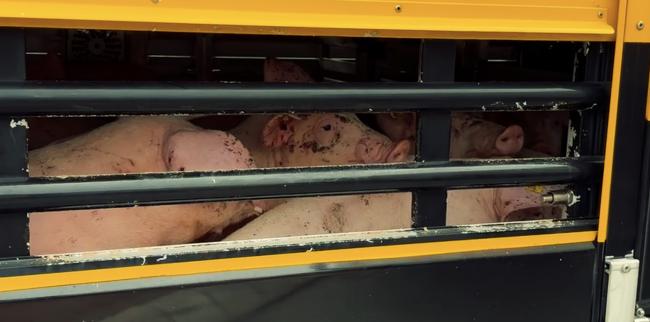
Weakness in existing laws provides opportunity for misconduct
All animal transports from Denmark lasting for more than eight hours must be pre-approved by the DVFA. However, when pig exporters specify a so-called assembly point such as the one in South Tyrol as the destination, the administration cannot check whether the pigs are subsequently transported on illegally long or hot journeys.
A collection point can never be the pigs’ actual destination, as it is merely a place where the animals are transferred and transported onwards. However, the law requires that the pigs be given a break at the collection point of at least 48 hours before being sent on. Otherwise, it cannot legally be declared as the destination.
The pigs that Dyrenes Beskyttelse followed only stayed in a small barn in South Tyrol for nine hours while the drivers took their mandatory rest break. The pigs were then transported in the same lorry – now outside the control of the Danish Veterinary and Food Administration – on a journey that was illegal in a number of respects.
Several factors indicate this incident is far from an isolated case
Official documents show that the DVFA approves a disproportionate number of pig transports with the South Tyrolean stable as their destination.
In the days following the pig transport Animal Protection Denmark recorded, several more pig transports left Skærbæk for the same destination. Together, they carried significantly more pigs than the facility is approved to handle, if the pigs are to have their supposedly mandatory 48-hour break. And this happens often, according to data from the agency.









Discussion about this post